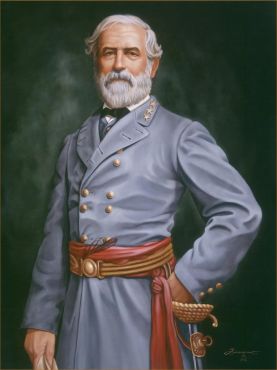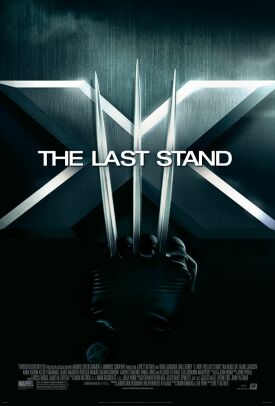Spate of Hate
From The New CriterionIf they wouldn’t do anything when children were murdered I have no hope that the Repugs will ever do the right thing. I’m actually not even sympathetic bc country music fans are often Republican gun toters.
That, as everybody now knows, was the Facebook post about the mass murders in Las Vegas at the beginning of October that got its author, Hayley Geftman-Gold, fired from her job as vice-president and senior counsel at CBS. How eaten up with hatred for your fellow-citizens who belong to a different political persuasion do you have to be so far to override the most basic sense of propriety, not to mention self-preservation, as to issue a public statement like that when the bodies were still warm? The unfortunate victims didn’t even have to be Republicans or gun toters to get what they deserved, in Ms Geftman-Gold’s opinion, only to like the same music that Republicans and gun toters “often” do.
She later apologized for what she described as her “shameful” post, but it should more accurately have been described as shameless. If whatever capacity for shame she might have been raised with had not been dried up and extinguished in her, as it has been in so many others these days, by too frequent an application to social media, she wouldn’t have written those words, or thought of doing so, in the first place. Their retrospective shamefulness will doubtless look to most people more like regret for what they have cost her — something that also could have been foreseen.
That there are so many fellow-sufferers from this 21st century epidemic of mass shamelessness might be considered a mitigating factor but for the fact that the shameless ones themselves never seem to regard it as one in any instance involving those they hate, such as gun toting Repugs or Donald Trump. Instead, they answer insult with insult and are never more outraged than when those they have insulted insult them back. I have often before remarked on the irony by which a virulent hatred of Mr Trump is dressed up in the ill-fitting costume of a campaign against “hate,” but the irony never seems to dawn on the Trump haters — perhaps because the ability to respond to irony is linked to the sense of shame, and burns up and blows away when it does.
I think it more interesting to ask ourselves where this hatred, sometimes softened by such quasi-clinical euphemisms as “partisanship” or “polarization,” comes from. One answer, from David Von Drehle of The Washington Post, is that “Americans are addicted to outrage” — for which he is inclined to blame the dealers of this dangerous drug on cable TV, talk radio and partisan websites. Oddly, he doesn’t mention mainstream media outlets like the Post itself or CBS, the erstwhile employers of Ms Geftman- Gold. But then the “outrage” which inspired his meditation was not her admittedly “appalling and stupid” remarks about the hated Repugs but rather the outpouring of vitriolic resentment which they inspired from those less respectable media venues. And who is responsible for that? Take a guess. The only named target of his own outrage is none other than Donald J. Trump, “the El Chapo of addictive controversy.”
I think we need to look elsewhere for the sources of this fatal attraction, this otherwise inexplicable willingness on the part of ordinary people to “inject a speedball of conflict” with every provocation, real or imagined, by those they despise. Why, for instance, do they despise each other in the first place? I can remember the debates among the progressives of the 1960s as to whether the views of those who disagreed with the antiwar faction should be allowed to be heard. They were similar to what you hear from the “antifa” demonstrators who are “no-platforming” those they claim are fascists today, but with a difference. Fifty years ago, the Vietnam War was considered such an enormity, such an atrocity, that the moral impetus behind the opposition to it was thought by many if not most of the opposers to have overriden every consideration of mere politeness or propriety.
What do we have to compare to that towering indignation today? Resentment against a boneheaded remark by a corporate lawyer? A vote for Donald Trump? A wish to preserve statues of long-dead Confederate soldiers? A plebian taste in music? In my old age, I find myself inclining to Jeeves’s opinion, in opposition to Bertie Wooster’s panicked question, “What do ties matter at a time like this?” Ties, which show every sign of going the same way as manners, can stand very nicely as a synecdoche for them in Jeeves’s reply. “There is no time, sir, at which ties do not matter.”
But let’s say, for the sake of argument — that same argument which will be the next thing to go after manners and has already gone, so far as the antifas and many if not most of those in the media are concerned — that Jeeves is wrong. Say that if the moral provocation is great enough neither ties nor manners nor anything else do matter. It nevertheless appears to be the case that, once we got into the habit of suspending any sense of the social proprieties in the name of our own moral and political sensibilities, we found ourselves doing it for ever more trivial or problematic causes until, by now, they are in a more or less permanent state of suspension. The addiction, in other words, was not to outrage but to the mellow high of our own self-righteousness.
Perhaps there we can begin to see where all the hatred comes from — which seems to me to be the habit, originally inspired by the revolutionary left, of localizing all our dissatisfactions with the world somewhere outside ourselves, in one person or a few people of evil disposition and malevolent intent who (we imagine) wish to do us harm, or to take away from us what is rightfully ours. It then becomes an additional source of grievance against this person or persons when we find that others deny or repudiate our discovery of his or their unique evil. So much so indeed that, like Hayley Geftman-Gold, we are prepared to dismiss or overlook real, obvious, open evil when it is committed against those whom we have taught ourselves to hate.
This idea had actually occurred to me a few hours before the Las Vegas shooter — as usual, I forbear to name one whose motivations for his wickedness seem likely to have included a lust for fame, as fame is understood in the age of shamelessness — went about his lethal work. At the time, as it happened, I was reading a column in the Sunday New York Times with which I largely agreed. Either Ross Douthat or his headline writer showed that he was aware of what he was doing when he titled it “Speaking Ill of Hugh Hefner,” an obvious reference to the old maxim about not speaking ill of the dead which is now just another of those dispensable canons of good manners that no longer apply in our age of stern moralism. And boy was Mr Douthat stern about the late pornographer and bon viveur of Playboy fame!
From many of his respectful if not uncritical obituaries, we learned that Mr Hefner had regarded it as his crowning achievement in life that his fame had not been what used to be called notoriety and that he had made smut-peddling into a respectable business, earning precisely that respect for his nefarious activities that Mr Douthat, signaling another swing of the cultural pendulum, would now deny him. It’s not that Hef didn’t deserve such opprobrium, but why take the occasion of his death for venting it? What purpose was such a diatribe more likely to have served: calling the world’s attention to the well-known faults of Hugh Hefner or to the somewhat less well-known virtues of Ross Douthat? Perhaps that is ungenerous of me, but then I can always plead his own ungenerousness as my excuse, can’t I? Isn’t that how the new manners work?
A better excuse would be that he is a journalist, and over the past half century we have come to think of a particular kind of language as being appropriate to journalism even when it wouldn’t be in ordinary social intercourse. It is the language of scandal, and of self-importance and self-righteousness, the language of those who have been taught to think of themselves as specially privileged to expose the discreditable secrets, or anything that could be made to look like them, of anyone in need of discrediting. The scandal merchant, like the left-wing activist, is always on the lookout for the bad guy, the villain who ruined everything and who can bear all the blame for whatever is troubling us.
The ultimate bad guy for the latter is of course the chimera of “capitalism,” and Mr Douthat even finds a role for that as an accessory to Mr Hefner’s ill-doings when he writes that “his success as a businessman showed the rotten side of capitalism — the side that exploits appetites for money, that feeds leech-like on our vices, that dissolves family and religion while promising that consumption will fill the void they leave behind.” Didn’t you always just know that it was those bastard, no-name capitalists who were doing all that? See with what ease media-think and scandal-think slot in together with left-wing “progressivism” and other Marxist-inspired doctrines. The left always led the way to the scandal-hunting mentality by first identifying that imaginary villain of villains, the capo di tutti capi, capitalism, and then its later-born ideological siblings: imperialism, colonialism, racism, sexism, homophobia, Islamophobia and, the runt of the litter, transphobia.
Yet in the midst of his column Mr Douthat wrote this:
No doubt what Hefner offered America somebody else would have offered in his place, and the changes he helped hasten would have come rushing in without him. But in every way that mattered he made those changes worse, our culture coarser and crueler and more sterile than liberalism or feminism or freedom of speech required. And in every way that mattered his life story proved that we were wrong to listen to him, because at the end of the long slide lay only a degraded, priapic senility, or the desperate gaiety of Prince Prospero’s court with the Red Death at the door.
But if somebody else would have done what he did — and, as is not mentioned here, many did, and much worse — why hate him so much just because he’s dead? Perhaps the clue comes in the next paragraph.
Now that death has taken him, we should examine our own sins. Liberals should ask why their crusade for freedom and equality found itself with such a captain, and what his legacy says about their cause. Conservatives should ask how their crusade for faith and family and community ended up so Hefnerian itself — with a conservative news network that seems to have been run on Playboy Mansion principles and a conservative party that just elected a playboy as our president.
Come on now, Ross, do you expect us to believe that blaming Trump on Hefner — or is it Hefner on Trump? — is the result of examining “our own” sins? Isn’t it rather precisely because we are blind to our own sins that we have such lashings of hatred and blame to spare for the likes of Messrs Hefner and Trump?
Both men, that is, should be seen as symptoms, not causes. They have merely exploited the opportunity presented to them by the changing culture — i.e. us. The bad guy in this sense is never going to be anybody but ourselves, though there may be many people worse than you or I. But one of them, Richard Nixon, was once here to tell you all that that means. It means that “those who hate you don’t win unless you hate them, and then you destroy yourself.” And yet Nixon is somebody else whom we never seem to be able to hate enough, in spite of his being dead these 23 years. As anyone knows who has ever perused a website which allows readers to comment, the thirty-seventh president is still capable of inspiring the most vicious and contemptuous kinds of language whenever his name, or that of Watergate, comes up.
I hate to keep bringing up the subject of honor (see “Right side vs. white side” in The New Criterion of October, 2017). Actually, I don’t hate it at all, but it seemed only polite to apologize for what must seem a bit of a hobbyhorse for those less interested in the subject than I am. But to the old honor culture, now defunct, we owe our traditions of manners and civil discourse which once restrained, if imperfectly, the flow of political as well as other kinds of passion. The coincidence of the birth of social media and the death of manners should not be surprising to us. What is surprising is the outrage about it on the left, which refuses to recognize its own part in killing manners off — I suppose to preserve their hypocrisy in condemning the right for unmannerliness.
We see just as much of this — as we also do of fake news — in the mainstream media as we do from pajama-clad trolls living in their parents’ basement. See headlines like “Cruelty, Incompetence and Lies” to yet another Paul Krugman column slamming congressional Republicans for any attempt to tinker with Obamacare. Professor Krugman no more hopes to persuade the Repugs to his point of view than Hayley Geftman-Gold did to hers. For both, discussion and debate, the heart of the democratic process, are not just outmoded but utterly forgotten. They take for granted that politics is war and the enemy is “other” — not subject to reasoned argument but only an object for their hatred and contempt. At least CBS had the grace to feel embarrassed about Ms Geftman-Gold’s having opened a window to the echoing hatred she felt she could take for granted in that whole corporate culture.
For her political passion was only a slightly crasser version of the media and entertainment figures as well as politicians seeking to ride the Las Vegas massacre to victory in their own little political battles, most but not all of them to do with some more or less futile form of “gun control” wearing the unmerited accolade of a panacea. Rivalling her in the world of entertainment was the ever bumptious Lena Dunham who tweeted that the “Las Vegas Shooting Is Actually About Gender, Race, Capitalism.” When queried about this on Twitter, she supplied as her only explanation a link to a Newsweek story by John Haltiwanger headed: “White Men Have Committed More Mass Shootings than Any Other Group.” White men, eh? Sounds like they, too, belong in that rogues’ gallery of evil-doers on which we can blame everything. And so, once again, we find that hatred, given free rein, tends to spread and generalize and, as wise old, wicked old Richard Nixon long ago discovered, eventually to destroy ourselves.
@
Discover more from James Bowman
Subscribe to get the latest posts to your email.







